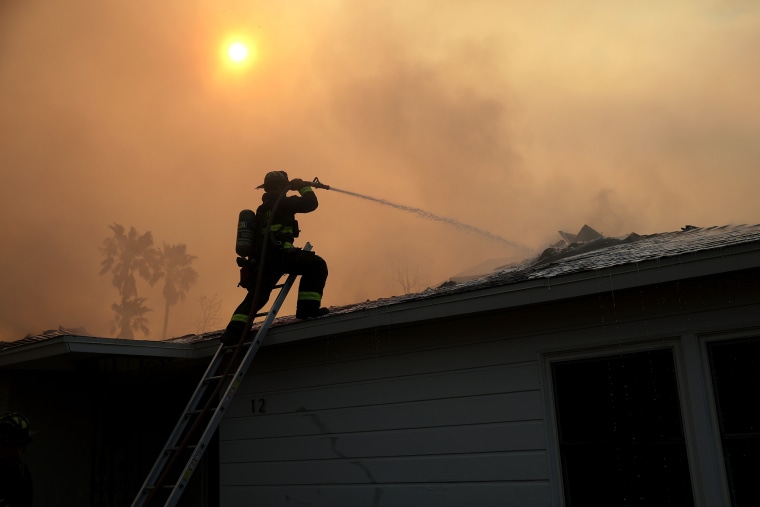
Residents of Southern California who suffered losses in this week’s fires in the Los Angeles area are starting to face their next obstacle: submitting an insurance claim.
Even while major insurers made news last year for refusing to issue any new policies in the state due to the increasing risk of fire, they continue to serve tens of thousands of potential clients.
California citizens do enjoy certain advantages not found elsewhere, even if public claims adjusters—who are privately hired by consumers seeking to sidestep insurance companies—warn that it can take years for claims to be handled.
The main advantage is that all California property insurers are required to pay up at least one-third of the estimated value of a policyholder’s personal goods right away, along with at least four months’ worth of rent for the policyholder’s neighborhood.
However, experts in the insurance sector caution homeowners that the final payout for a damaged or totaled home may be less than what policyholders believed they were receiving and that they should anticipate negotiating with the carrier, the claims adjuster, and contractors for rebuilding and loss recovery.
According to Amy Bach, executive director of United Policyholders, a consumer advocacy organization, “think of it like a business transaction.” Don’t be a pushover and keep your eyes open, but give your insurance business an opportunity to act morally. Nobody will enter brandishing a magic wand.
First steps
Policyholders can now file claims online or even using mobile apps with the majority of insurance firms.
They differ, though, in how much paperwork is needed. According to experts, the documentation process will be crucial to recovering damages, and many businesses have started to be picky about what is finally covered.
Experts advise gathering receipts for both lost or damaged goods and purchases made while a policyholder is relocated, as well as recording thorough films and photos of the damage to guarantee the highest compensation. Wait for the insurer’s approval before discarding anything.
According to Janet Ruiz, director of strategic communications at the Insurance Information Institute, which advocates for the insurance sector, it’s critical to be extremely meticulous and make sure everything is taken care of.
Rebuilding a home to its pre-damage or pre-destruction state may also be necessary when settling loss claims. As a result, experts advise making a photo album with pictures of the inside and outside of a house.
Additionally, policyholders should make thorough notes of all discussions they have during the process, including names, dates, and phone numbers.
Getting paid
According to Ruiz, California carriers provide cash loans to cover short-term relocation expenses, but the payout amounts are frequently based on the depreciated worth of the belongings.
Regarding compensation for actual damaged or ruined homes, some long-term policyholders could discover that, despite the recent increase in the worth of their property, they have not been paying for the same amount of insurance.
Therefore, it could be challenging to restore their house to its pre-disaster market worth or higher.
However, certain specific policies have what are referred to as extended replacement cost clauses, which enable policyholders to recover the cost of reconstructing a home at market value.
However, according to Bach, insurers have been more active in rejecting some claims, particularly for partial damage where char, smoke, and ash may have played a role.
Bach advised all impacted residents to seek for assistance from the Small Business Administration and the Federal Emergency Management Agency, even though many will not be eligible since their incomes exceed certain levels.
If you had no insurance
There are still solutions available if someone recently paid cash for a new house, was expelled from a policy, or just couldn’t afford insurance.
Homeowners can now apply for loans from the Small Business Administration, which, despite its name, offers support to those who did not own businesses, and FEMA has already started offering interim assistance alternatives.
